Dialogue in Practice
10 H.E. MRS. ANNE ELISABETH LUGONMOULIN
Swiss Ambassador to Serbia
Bridging Understanding and Innovationn
10 ANA GOVEDARICA
President of the Swiss-Serbian Chamber of Commerce (SSCC)
Innovation as the Cornerstone of Cooperation
14 NIKOLA STOJKOVIĆ
President of Novartis for Serbia and Montenegro
Partnerships for Life-Changing Innovation
15 MARJANA DAVIDOVIĆ
Country Manager of Nestlé for Serbia, Montenegro and North Macedonia
Farming for the Future
16 MATTHIAS HERR, SNEŽANA MIŠIĆ MIHAJLOVIĆ, PAULO RODRIGUES, GORANA RADOVANOVIĆ
Helvetas
Ten Years of Helvetas in Serbia
18 MILENA GAJOVIĆ SHRESTHA
General Manager, SR Technics Servicesd Montenegro
Powering Global Progress from Serbia
19 SANJA PEŠIĆ
CEO, Alma Quattro
In Anticipation of the Swiss National Day
20 TEN SWISS STARTUPS TO WATCH IN 2025. FEATURE
23 NIRAS GERMANY GMBH BELGRADE OFFICE
Bridging Skills, Building Futures: Serbia’s Career Guidance Transformation
24 TANJA MILOVANOVIĆ
Managing Director at Schindler Serbia
Setting New Standards
26 MILICA ARANĐELOVIĆ
Partner, DJokić + Partners
AI Must Be Regulated by Law
22 ALEKSANDAR GORAČINOV
Director of the SME HUB Project A Partnership That Shifts the Paradigm
SWITZERLAND 2025
30 SWITZERLAND ON TOP OF THE WORLD TOURISM
32 SOUNDS OF THE ALPS IN THE HEART OF BELGRADE CULTURAL EXCHANGE
28 ANA GRUJOVIĆ
Executive Director of the Swiss-Serbian Chamber of Commerce (SSCC)
Swiss Expertise, Local Impact
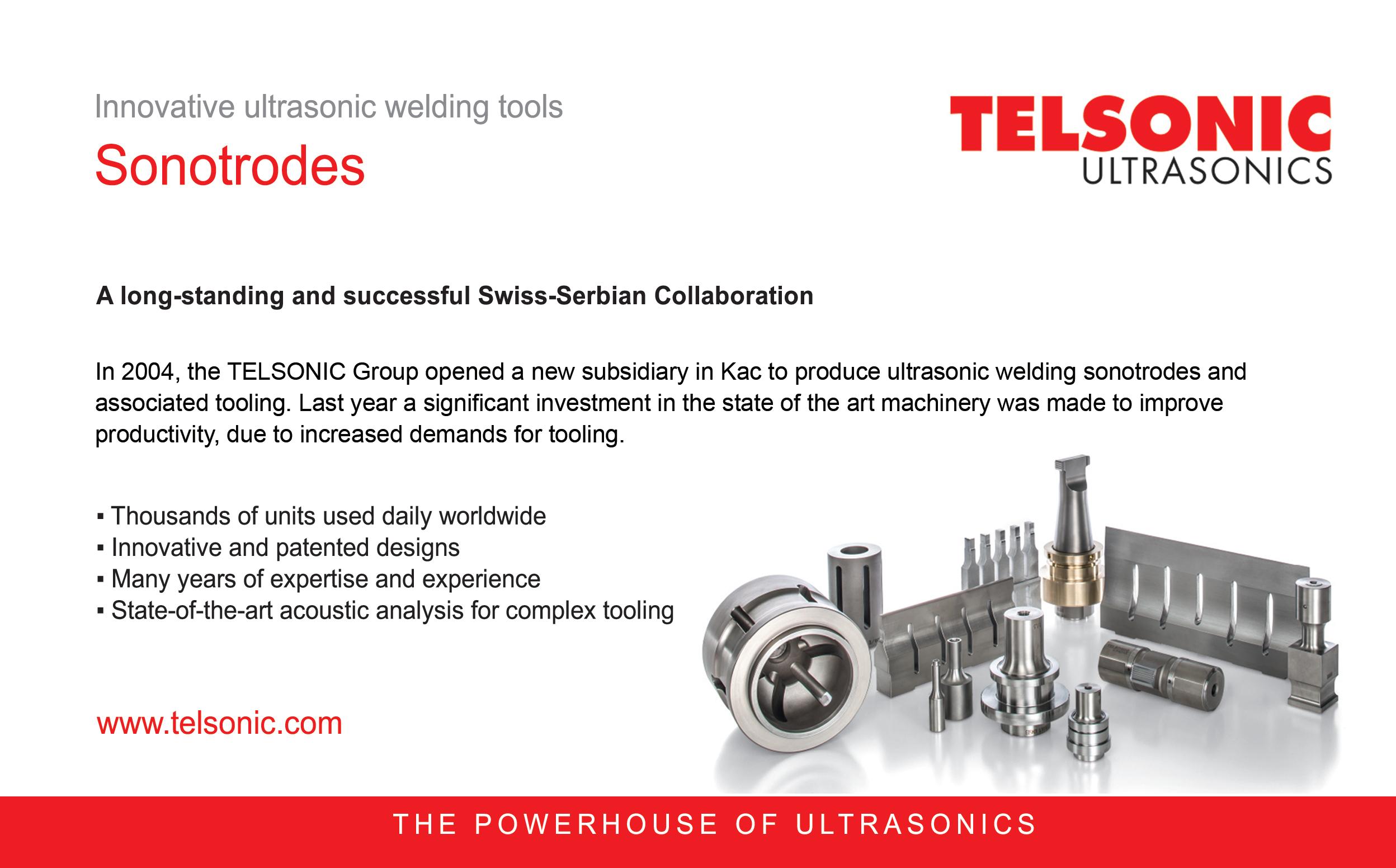
Dialogue in Practice
Innovation, partnership and cultural empathy define the evolving Swiss–Serbian relationship. This issue explores the many layers of cooperation—from alpine heritage and digital entrepreneurship to the lasting impact of Swiss investment
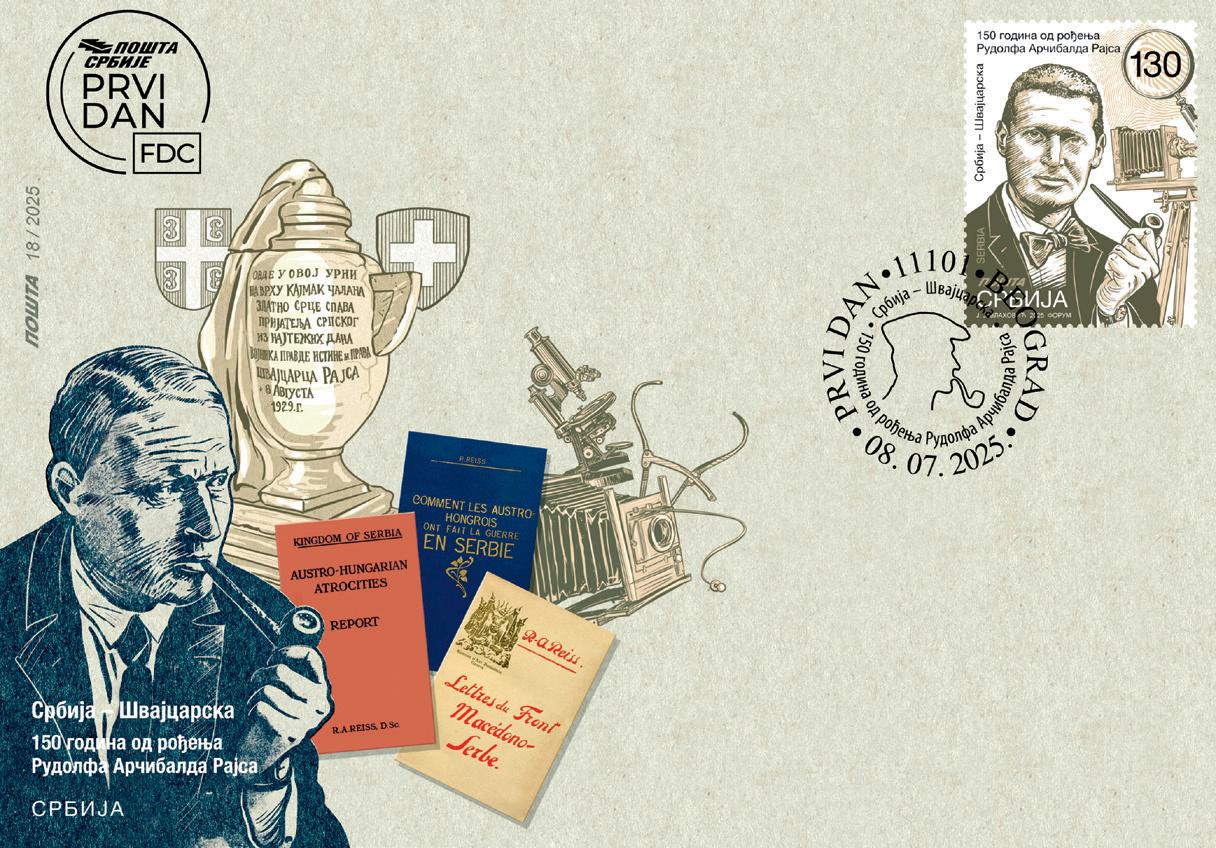
To mark the 150th anniversary of the birth of Rodolphe Archibald Reiss, the Serbian Post, in cooperation with the Embassy of Switzerland in Belgrade, issued a commemorative stamp edition titled “Serbia –Switzerland” on 8th July.
SThough different in scale, Switzer land and Serbia share a growing pur suit of excellence, responsibility and future‑minded development. In the pages ahead, we trace how this relationship con tinues to grow—grounded in trust, fuelled by in novation, and made tangible through the work of companies, chambers and individuals commit ted to long‑term engagement.
We begin with H.E. Ambassador Anne Elis abeth Lugon‑Moulin, whose thoughtful diploma cy elevates the bilateral agenda. As the first wom an to serve as Swiss Ambassador to Serbia, she combines clarity of purpose with a nuanced un derstanding of how dialogue, education and in
Switzerland’s strength lies not only in what it builds, but in how it builds—with patience, respect and continuity. That same spirit now shapes its partnership with Serbia, offering a rare example of diplomacy that delivers beyond declarations
clusion shape lasting partnerships. Her focus on biotechnology, digital health and academic ex change reflects a diplomacy firmly oriented to wards the future.
The same tone of commitment defines our con versation with Ana Govedarica, President of the Swiss‑Serbian Chamber of Commerce, and Ana Grujović, its Executive Director. They highlight the visibility of Swiss investment—from cutting‑edge AI to sustainable real estate—and underline the need for a regulatory framework that supports in novation, ethical business and the green transition. Their emphasis on digital healthcare, circular econ omy and gender‑balanced leadership shows how economic engagement can drive social progress.
Cultural exchange, too, remains a vital bridge. In Sounds of the Alps in the Heart of Belgrade, we explore how music builds familiarity where politics may falter.
Elsewhere in this issue, Ten Swiss Startups to Watch in 2025 showcases Switzerland’s dynamic entrepreneurial energy. From medtech to mobil ity, these ventures explain why the country tops innovation indices and point to potential syner gies with Serbia’s startup ecosystem.
Tourism reflects similar momentum: 2024 brought a record number of overnight stays, driven by European travellers and a rise in visitors from North America. Urban centres like Zurich and Ge neva thrive, while alpine destinations prove that sustainability and beauty can go hand in hand. All of these strands—political, economic and cul tural—are sustained by a network of actors whose contributions deserve recognition. From multina tional leaders such as Nestlé, Roche, Schindler, Novartis and ABB, to development partners like Helvetas, Telsonic and SME Hub, the depth and consistency of Swiss engagement in Serbia is re markable. Completing this mosaic are the legal expertise of Đokić Law, the financial stability of OTP Bank, the biopharmaceutical innovation of Amicus, the long‑standing market presence of Alma Quattro and the consultancy services of IP Consult – together embodying institutional good will and entrepreneurial energy.

Bridging Understanding and Innovation
The cultural richness of Serbia, the warmth of its people, and the depth of the country’s challenges and aspirations make this posting both complex and inspiring - H.E. Mrs. Anne Elisabeth LUGON-MOULIN
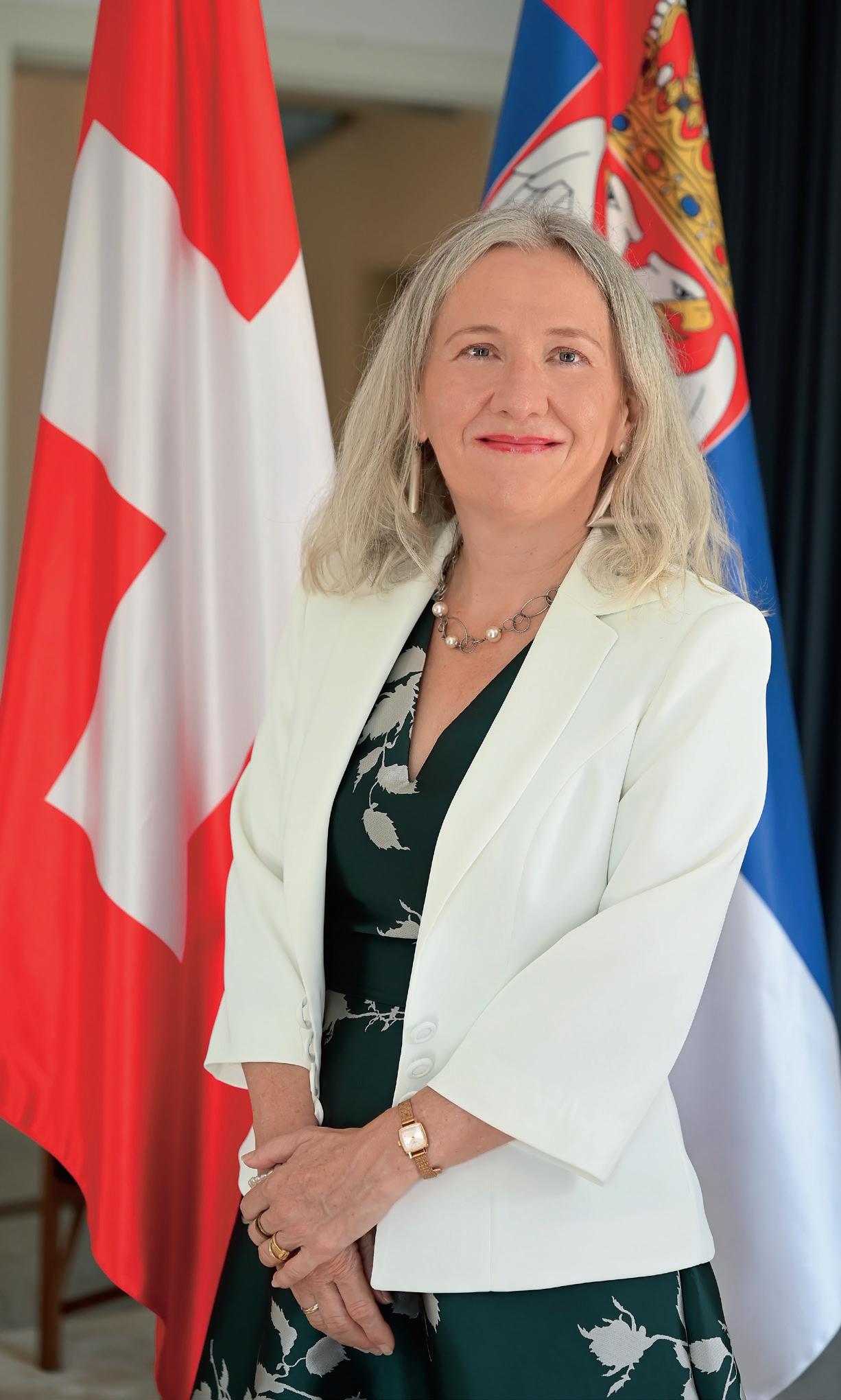
H.E. Mrs. Anne Elisabeth LUGON MOU LIN, Ambassador of Switzerland to Serbia, shares with CorD her impres sions after nearly a year in Belgrade, reflecting on the cultural richness, institutional cooperation and the evolving bilateral agenda. In this interview, she speaks about Switzerland’s early support for EXPO 2027, the enduring value of education and innovation, the role of Swiss businesses in Serbia, and the promising outcomes of the first Swiss–Serbian Innovation Forum. She also offers thoughtful insights on the importance of inclusive dialogue, academic cooperation, and partnerships that place Serbia on the regional in novation map.
Your Excellency, you arrived in Serbia nearly a year ago, and the media highlighted that you are the first woman to serve as Swiss Ambassador here. Given that your diplomatic career has largely been shaped by your postings in Africa, have you managed to adapt to the Balkans? — Indeed, it has been almost a year since I arrived in Serbia, and I can say that it has been an im mensely enriching experience both professionally and personally. Every region has its own rhythm, history and complexity, and I approach each new posting with curiosity and humility. While my pre vious work in Africa shaped my understanding of development, resilience and diplomacy, the Bal kans bring a different set of dynamics, particular ly regarding proximity to the European Union and the legacy of recent historical events. However, I am not new to the region. Fifteen years ago, I was covering the Balkans – and later the former CIS countries – from Bern. I therefore had many op portunities to visit the region, and I can see the positive changes since then. It is quite impressive! As for being the first woman to serve as Swiss Ambassador to Serbia, I carry this role with a sense of responsibility and pride. I have been warmly welcomed by Serbian institutions, civ il society, and the international community. The
cultural richness of Serbia, the warmth of its people, and the depth of the country’s challeng es and aspirations make this posting both com plex and inspiring.
You have assessed that bilateral relations between Switzerland and Serbia have progressed rapidly. What is the central focus of this cooperation today?
— Switzerland and Serbia enjoy strong and di verse bilateral relations that encompass politi cal dialogue, economic cooperation, a migration partnership, cultural exchange, and internation al cooperation in environmental protection, gov ernance and economic development. These rela tions are built on mutual trust and a shared com mitment to democratic values, social cohesion and long term stability.
On the political level, our countries maintain regular and constructive dialogue on bilateral, re gional and international issues. Economic ties are also significant, with Switzerland being one of the leading foreign investors in Serbia – ranked fifth in 2024 – and home to more than 600 Swiss com panies operating across various sectors.
Cultural and educational cooperation has gained importance as well, helping to strengthen connections between our societies and promote mutual understanding. Development coopera tion remains a central pillar, with Swiss support focused on strengthening democratic institutions, improving public services, fostering innovation, and advancing environmental sustainability.
At the end of last year, it was announced that Switzerland was the first country to confirm its participation in EXPO 2027. What was it about the Belgrade exhibition that attracted your interest?
— Switzerland saw EXPO 2027 as a unique oppor tunity from the very beginning. The theme “Play for Humanity” resonates with our values of in clusion, innovation and cooperation. We were also impressed by the ambitious vision present ed by Serbia in its candidacy and by the poten tial of the EXPO to serve as a platform for region al and global dialogue.
Belgrade is a dynamic and creative city. The decision to be the first country to confirm partic ipation reflects our confidence in Serbia’s ability to deliver a meaningful and forward looking in ternational event. It also demonstrates our will ingness to deepen bilateral ties and to contribute to Serbia’s visibility on the global stage. I should also add that Switzerland has a long standing tra dition of participating in both universal and spe cialised Expos.
It is often said in Serbia that the country should follow Switzerland’s example, particularly its strategy of placing education among the key drivers of success. Switzerland has been a key promoter of dual education in Serbia. Does the current moment call for a renewed focus on highly qualified academic profiles?
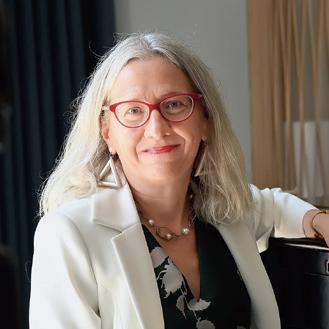
DIALOGUE
We firmly believe that inclusive dialogue and accountable institutions are essential not only for political stability but also for strengthening public trust and social cohesion in the long run
INVESTORS
like any investors, Swiss companies closely monitor the overall business climate, the rule of law, and the broader political environment
FORUM
The first Swiss–Serbian Innovation Forum was an excellent milestone for deepening cooperation in science, research, and innovation
— Education has always been a foundation of Switzerland’s prosperity and innovative capaci ty. Switzerland has ranked number one in many international innovation indices for over a dec ade. While we invest heavily in research and de velopment, we also believe strongly in combining academic and vocational education. The dual ed ucation model, which combines classroom learn ing with hands on experience in private compa nies, has proven highly effective in supporting young people’s transition into the labour market.
In Serbia, we have been supporting the devel opment of the dual education system for several years, and this model continues to show promis ing results. That said, the future of any economy also depends on advanced academic profiles, es pecially in the fields of technology, science and research. That is why we also support initiatives that strengthen Serbia’s innovation ecosystem. We fund local innovation institutions and provide as sistance and grants to start ups. A well rounded education system should offer diverse opportu nities to young people and respond to the needs of a changing labour market.
You are currently witnessing a serious social crisis in Serbia, with the University at its centre. How do you view the student movement and their protests?
— As a diplomat, I do not interfere in domestic po litical matters, but I do follow developments close ly from both a political and security perspective.
Universities have always played a vital role as spaces for independent thought, civic responsi bility, debate and science. The right to education is also a basic human right.
Switzerland has a long standing tradition of participatory democracy. We firmly believe that inclusive dialogue and accountable institutions are essential not only for political stability but also for strengthening public trust and social co hesion in the long run.
There are currently around 600 Swiss companies operating in Serbia, employing approximately 14,000 people. To what extent are recent domestic developments and Serbia’s stagnation in the EU accession process influencing business decisions regarding continued investment in the country?

— Swiss companies value long term stability, transparency and predictability. Serbia offers many attractive qualities for investors: a skilled workforce, geographic proximity to the EU, and good infrastructure. However, like all investors, Swiss companies closely monitor the overall busi ness climate, the rule of law and the broader po litical environment.
Fifteen years ago, I was covering the Balkans – and later the former CIS countries – from Bern. I therefore had many opportunities to visit the region, and I can see the positive changes since then
The EU accession process remains an impor tant signal for many companies. Progress on re forms, particularly in areas such as judicial in dependence, public procurement and environ mental regulation, helps reinforce investor con fidence. That said, many Swiss companies in Serbia have shown great resilience and contin ue to expand – a testament to the real opportu nities that exist here.
Is it already possible to speak of any concrete outcomes of the first Swiss–Serbian Innovation Forum, held last December?
— The first Swiss–Serbian Innovation Forum was an excellent milestone in deepening cooperation in science, research and innovation. It brought to gether stakeholders from both countries across sectors, including start ups, academia and gov ernment representatives. Since then, we have seen encouraging follow up, particularly in the areas of digital health, biotechnology and cleantech. Concrete outcomes include new partnerships between universities and research centres, in creased interest in joint grant applications, and pilot projects involving Serbian start ups and Swiss technology providers. The Forum con firmed the great potential for innovation to be come a stronger bridge between our two coun tries. We are committed to supporting this pro cess and to establishing a more structured inno vation dialogue in future.
Has the previously announced cooperation between Novartis and Serbia’s BIO4 Campus been formalised?
— The partnership is expected to focus on re search and development in biotechnology, bio
medicine and bioinformatics aimed at combat ing major diseases.
Yes, the cooperation between Novartis and Ser bia’s BIO4 Campus has been formalised through a Memorandum of Understanding outlining strate gic collaboration in biotechnology, biomedicine and bioinformatics.
One of the first initiatives under this memo randum was launched in partnership with the Institute of Molecular Genetics and Genetic En gineering of the University of Belgrade, and the Clinic for Endocrinology, Diabetes and Metabolic Diseases at the University Clinical Centre of Ser bia. The project, entitled “Genetics and Pharma cogenetics of Familial Hypercholesterolemia in
Efforts have begun to implement digital health and artificial intelligence solutions, including the development of a clinical decision support system in the field of cardiovascular disease prevention and treatment
Serbia”, involves genetic testing aimed at identi fying the genetic profile of patients with inherit ed lipid disorders. The ultimate goal is to estab lish a national screening programme for familial hypercholesterolemia.
In parallel, efforts are underway to implement digital health and artificial intelligence solutions, including the development of a clinical decision support system for the prevention and treatment of cardiovascular diseases. This system will ena ble healthcare institutions to generate and ana lyse health data more effectively, resulting in fast er diagnoses, improved care quality, and more ef ficient treatment outcomes.
Further discussions between Novartis and the BIO4 Campus are ongoing and highly promising. Novartis has a strong presence in Serbia and glob ally, and its interest in collaborating with the BIO4 Campus reflects Serbia’s growing relevance in re gional research and development.
Switzerland greatly values such collabora tion, particularly when it links Serbian scientific capacity with global expertise. The focus on bi otechnology, biomedicine and bioinformatics is essential to addressing both current and future
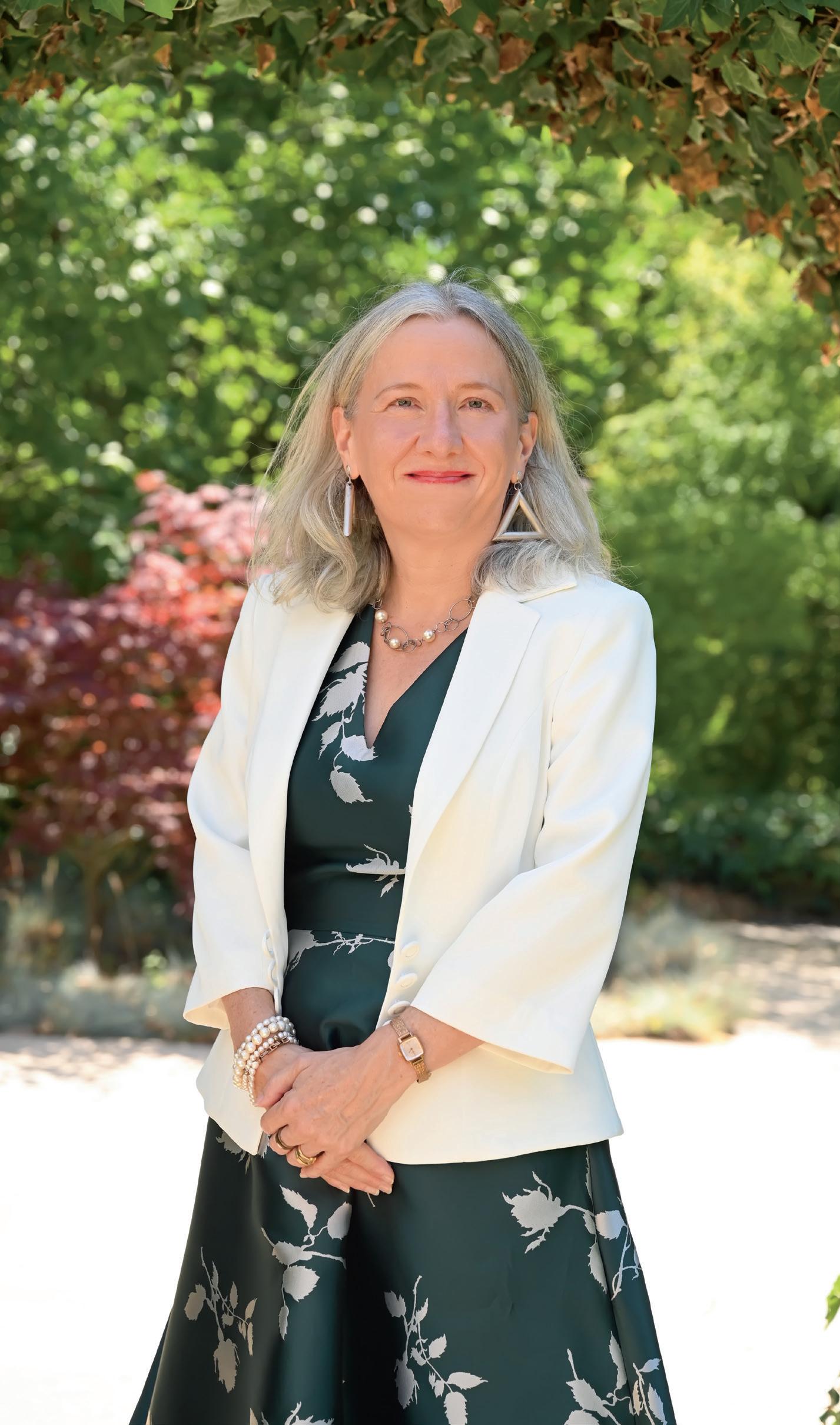
healthcare challenges. We are confident that this partnership will significantly strengthen Serbia’s healthcare ecosystem and contribute to position ing the country as a regional innovation hub in the Western Balkans..

Innovation as the Cornerstone of Cooperation
The Swiss-Serbian Chamber of Commerce plays an increasingly visible role in shaping Serbia’s innovation ecosystem and advancing green solutions. From EXPO 2027 and digital healthcare to deepening bilateral investments, its strategic directions are clearly focused on sustainable growth
In this interview for CorD, Ana Govedarica, President of the Swiss-Serbian Chamber of Commerce and General Manager, Roche Serbia and Montenegro, discusses how innovation, artificial intelligence and the green transition are driving forward cooperation between Switzerland and Serbia. Through concrete initiatives, SSCC mem-
ber companies are building a bridge between science and business, strengthening local capacities and opening the door to new investments.
Which strategic priorities would you highlight for the SSCC over the next five years, particularly in view of EXPO 2027 and the growing international attention on Serbia?
— Innovation represents a vital link between Swiss and Serbian companies. Stimulating innovation-related activities in Serbia, connecting academic and business stakeholders, promoting science and supporting the development of innovative business solutions can help increase Serbian exports, boost the competitiveness of domestic companies on international markets, and attract new Swiss investors – all while creating new jobs for young talents in Serbia.
SSCC members are already contributing to the development of innovative products and services across a wide range of sectors, including healthcare, IT, agribusiness and infrastructure. Among innovation areas, artificial intelligence is a particular focus for many member companies. One of SSCC’s strategic directions in the coming period is to highlight the importance of AI in business growth, examine its impact on the transformation of work and explore how it can increase productivity.
In this regard, it is important to mention the importance of the Global Partnership on Artifi cial Intelligence (GPAI) Summit, which was held in Belgrade in December 2024, as it was dedicat ed to advancing the responsible development of artificial intelligence and leveraging AI for soci etal benefit.
Switzerland’s participation in EXPO 2027 will accelerate the exchange of innovative ideas in science and business between senior officials, research institutions and industry leaders – giving Serbia a fresh impetus to position itself as a regional leader in innovation, much like Switzerland.
How would you assess Serbia’s preparedness to meet the challenges of the green transition, and what opportunities does this open for Swiss investors?
— The green transition and energy efficiency are of vital importance to Serbia’s sustainable development. Circular economy has already been recognised as a powerful driver of green transformation, and many SSCC member companies are actively contributing to the preservation of natural resources in Serbia.
To name one example, Nestlé has introduced regenerative agriculture practices and adopted a Zero Waste to Landfill approach to preserve the environment. These practices show that eco-conscious production is not only possible, but also viable on the Serbian market – sending a strong signal to interested Swiss investors.
Of course, there are still numerous challenges when it comes to effective implementation of green business principles, especially for small and medium-sized enterprises. These companies
need continued support – from staff training and guidance on financing instruments for sustainable development, to business networking and policy dialogue between government and industry.
The healthcare sector is rapidly transforming under the influence of digital technologies, personalised medicine and evolving global regulations. Based on your experience in this field, what would you highlight as the key steps for strengthening collaboration between the private sector, academia and healthcare institutions in Serbia?

HEALTHCARE
Healthcare is undergoing a profound transformation, and Serbia has an opportunity to harness this momentum to accelerate the modernisation of its system
AI One of the most exciting aspects of AI in healthcare is its application in preventative medicine
COLLABORATION
The Swiss-Serbian Chamber of Commerce has long underlined that collaboration between business, academia and the state is key to the transfer of knowledge and technology
— Healthcare is undergoing a profound transformation, and Serbia has an opportunity to ride this momentum and modernise its system.
First, we must collectively work to enhance data sharing and strengthen digital capabilities. Digital technologies improve treatment outcomes and enable more efficient care, but this depends on high levels of trust and responsible data use. Transparency and investments in digital infrastructure are prerequisites.
Second, deeper collaboration with academic and scientific communities is crucial. Companies have been investing in clinical trials and expert partnerships in Serbia for years, but real systemic progress requires stable regulatory frameworks and incentives for innovation.
Third, capacity building among healthcare professionals through continuous training and international exchange is key to successful implementation of new therapies.
Finally, I believe open dialogue between the state, healthcare institutions, academia, scientific communities and industry is essential for developing a sustainable model of healthcare. Our shared vision should place the patient at the centre, with access to modern and effective treatments.
How do you see the future of innovation and its application in healthcare in Serbia, and how are Swiss companies operating locally, such as Roche, contributing to the advancement of the Serbian health sector?
— I believe that the future of healthcare in Serbia is inextricably linked to the expansion of innovation and the adoption of advanced therapeutic and digital solutions. Serbia has a strong base of experts and healthcare institutions that are open to innovation, but for sustainable progress, it is vital to strengthen partnerships and create a more predictable environment – including consistent availability of innovative therapies.
Swiss companies such as Roche are helping to support this transformation through ongoing investments in the education of healthcare profes-

sionals, contributions to the development of Real World Evidence (RWE) and digital platforms. All of this brings us closer to delivering the most effective therapy for each individual patient within the healthcare system.
The Swiss-Serbian Chamber of Commerce has long emphasised the importance of collaboration between business, academia and the state as a
Artificial intelligence is revolutionising the healthcare industry – transforming how diseases are diagnosed, how patients are treated, and how new medicines are developed
key factor for knowledge and technology transfer. Companies operating within the Swiss business community in Serbia uphold high standards of ethics and transparency – further building trust and fostering innovation.
Swiss companies have supported Bio4Campus, which is positioning itself as a new centre of Serbia’s research and innovation ecosystem. What are your expectations of Bio4Campus in terms of further developing AI and IT, particularly in the healthcare sector?
— Bio4Campus helps to bridge the gap between artificial intelligence and digital technologies, on the one hand, and their application in sectors such as biomedicine and biotechnology, on the other.
AI is ushering in a revolution in healthcare –transforming how diseases are diagnosed, how patients are treated, and how new drugs are developed. This technology holds vast potential for improving diagnostic accuracy, reducing costs and accelerating healthcare processes.
One of the most promising aspects of AI in healthcare is its role in preventative medicine – such as screening for breast or lung cancer – which is vital for early detection and better treatment outcomes.
Which activities from recent years would you consider most influential in shaping the business climate between Switzerland and Serbia?
— The first Serbia–Switzerland Innovation Forum, held in December last year by Serbia’s Ministry of Science, Innovation and Technological Development and the Embassy of Switzerland in Belgrade – with the support of SSCC, NTP Belgrade and other partners – brought together leading experts, researchers and businesspeople from both countries to exchange knowledge and experience on innovation and create a supportive environment for entrepreneurship and startups. This event was instrumental in accelerating the development of Serbia’s innovation ecosystem and, in turn, improving its domestic business climate.
In February this year, the groundbreaking ceremony for the Kings Fountain Dedinje residential complex took place. The project highlights the strong economic ties between Switzerland and Serbia, reflecting a commitment to fostering investment and raising the standards of residential living. In addition, it presents a new milestone in bringing Swiss excel-
lence, innovation, and superior quality on the local market.
Finally, the field of digital transformation and artificial intelligence, along with the activity of SSCC member companies in these areas, continues to strengthen the economic ties between Switzerland and Serbia.
How does SSCC plan to increase its visibility in Switzerland and attract new members not yet present on the Serbian market?
— The information technology sector continues to draw strong interest from Swiss companies, as do the medtech and biotech industries. In line with this, in June this year, SSCC members had the opportunity to attend a working lunch with Adrian Hunn, Director of Swiss Medtech – Switzerland’s leading business association for the medtech sector, representing around 800 companies. The event was organised in collaboration with our partner in Zurich, the Chamber of Commerce Switzerland Central Europe (SEC), with whom we host several events each year in Switzerland to strengthen visibility not only for SSCC, but also for the many attractive business opportunities available in the Serbian market.

Devoted

Securiton
Partnerships for Life-Changing Innovation
Nikola Stojković, President of Novartis for Serbia and Montenegro, speaks to CorD about the importance of collaboration in healthcare innovation, Novartis’ plans, and Serbia’s potential
t the core of Novartis’ operations lies a commitment to developing innovative solutions in the areas that impose the greatest burden on society – such as cardiovascular diseases, oncology, neurology, immunology and rare diseases. Novartis has one of the most competitive research pipelines in the industry, with therapies that could significantly improve treatment standards across the globe. The combination of advanced technologies and local expertise, Stojković concludes, represents a formula for a sustainable and equitable healthcare system in Serbia.
AStojković underlines that Novartis is not only investing in access to innovative therapies, but also in broader support for the healthcare system. “Healthcare is not an expense, but an investment in a healthy and productive society. That’s why, beyond therapies, we aim to connect science, industry, the medical community and the government in order to improve the overall healthcare environment.”
Following the recent signing of a Memorandum of Understanding with the Government of Serbia within the framework of the BIO4 Campus, Serbia’s place in the development of biomedicine and digital health has become increasingly prominent. “This marks the beginning of a strategic partnership – one not based solely on therapies, but also on knowledge, technology and a shared vision,” says Stojković.
One such example is cardiovascular disease – the leading cause of death in Serbia. “Given that elevated LDL cholesterol is a major risk factor, it is time to move from late response to early detection. That’s why we supported an interventional initiated research project led by the Institute of Molecular Genetics and Genetic Engineering and the Clinic for Endocrinology of the University Clinical Centre of Serbia. The aim was to identify pathogenic mutations in genes involved in LDL metabolism and to establish a genotype-phenotype correla-

saving lives but also easing the burden on the healthcare system.”
In oncology, Novartis is dedicated to improving the treatment pathway for women with breast cancer – from early diagnosis to follow-up. “Together with our partners, we are developing platforms for data collection and therapy personalisation,” Stojković notes.
Technology – particularly artificial intelligence – is central to Novartis’ strategy. “AI does not replace doctors, but it enables them to make faster and more accurate decisions. It helps identify risks, patterns and
Healthcare doesn’t change overnight. But with a clear vision, strong partnerships and the courage to try something new – we can build a system that is sustainable, predictive and, above all, humane
tion within the Serbian population. The results, published in May this year, represent a major step forward in early diagnostics and cascade screening of familial hypercholesterolemia. The next phase will focus on developing pharmacogenomic approaches for personalised treatment.”
In the field of rare diseases, Novartis supported the introduction of national screening for spinal muscular atrophy (SMA) in Serbia. “Today, babies diagnosed at an early stage begin therapy within the first months of life – not only
tailor treatment – this is the future, and it is already happening.”
Reflecting on Serbia’s potential, Stojković says: “We have world-class experts and BIO4 is a platform that connects them. However, the main goal is to develop solutions right here for our patients and for our healthcare.”
He concludes: “Healthcare doesn’t change overnight. But with a clear vision, strong partnerships and the courage to try something new – we can build a system that is sustainable, predictive and, above all, humane.”
Farming for the Future
Regenerative agriculture is transforming the way we grow, produce and consume food. Nestlé is setting new standards for regional supply chains, proving that business success and responsibility can go hand in hand
For Nestlé, the shift from conventional to regenerative agriculture is not just a business decision but an ethical imperative. As a regional pioneer, the company has invested CHF 1.8 million in projects supporting sustainable practices – from strip-till technology and cover crops to the use of drones, robotics and organic fertilisers. In addition to working towards carbon-neutral opera-
ethical obligation and a long-term business orientation. Since launching our first regenerative agriculture project in Serbia in 2021, we have become a regional pioneer. In partnership with our suppliers, we have developed projects that apply sustainable agrotechnical methods such as strip - till technology, planting cover crops, using organic fertilisers, drones and robotics to reduce CO₂ emissions and improve soil structure. We also support suppliers in optimising crop rotation and adapting production to local climate conditions, which is vital for yield stability. Since its launch, Nestlé Serbia has invested CHF 1.8 million in regenerative agriculture programmes for dried vegetables, sunflower oil and soya suppliers.
Equality and inclusion are the foundations of our culture and operations. We believe that only diverse teams, bringing different perspectives, can make innovative and sustainable decisions
tions, Nestlé promotes circular economy principles through food donations worth over 150 million dinars in the past five years, while its Surčin factory stands as a model of sustainable production. In this interview, Country Manager Marjana Davidović discusses the company’s approach to climate challenges, food security and inclusive leadership.
Regenerative agriculture is no longer a trend but a strategic direction. How is Nestlé reshaping local supply chains and supporting your partners?
— Transitioning from conventional to regenerative agriculture is, for us, both an
What are your key initiatives for tackling climate change and food security in the region?
— Regenerative agriculture is a significant part of our path to neutralising greenhouse gas emissions, but our optimisation extends throughout the supply chain. This also includes production, with our Surčin factory serving as a model of sustainability. Since 2019, it has operated on a zero-waste-to-landfill principle, ensuring no production waste ends up in municipal landfills, while its advanced wastewater treatment plant purifies 65,000 litres of water daily, returning it clean to natural recipients.

Food donations to vulnerable groups are not just acts of empathy or corporate responsibility; they are also integral to our circular business approach, helping manage food surpluses and reduce waste. As the world’s largest food producer, we are committed to fighting hunger, donating nearly 30 tonnes of Nestlé products in the first half of this year alone to vulnerable communities, including those affected by wildfires in southern Serbia. Over the past five years, our donations have exceeded 150 million dinars.
How important is gender equality at Nestlé, and what is the role of female leaders in creating a more responsible business environment?
— Equality and inclusion are the foundations of our culture and operations. We believe that only diverse teams, bringing different perspectives, can make innovative and sustainable decisions. I believe that the representation of women in leadership positions should not be a matter of quotas or corporate obligations, but rather a matter of knowledge, commitment, professional integrity and a company’s dedication to developing female leaders. I am proud that Nestlé takes this matter seriously through various initiatives, such as flexible working models, support for balancing professional and personal life, and programmes focused on mental health awareness and inclusion. These efforts are producing results, with women now holding the majority of managerial positions in our region.
Ten Years of Helvetas in Serbia
Fostering local ownership, advancing inclusion, and promoting innovation through long-term partnerships across Serbia
Helvetas is a leading Swiss organisation for devel‑ opment cooperation and humanitarian response, committed to fair opportunities worldwide. Its mis‑ sion is to help and support vulnerable people and communities in nearly 35 developing and transition countries. Ten years ago, Helvetas opened its office in Belgrade, which later became the seat of the Helvetas Eastern Europe Region‑ al Office. While firmly rooted in Switzerland, the organisation has since built a strong and lasting presence across eleven Eastern European countries.
“Our role is not to deliver ready‑made solutions, but to facil‑ itate local transformation,” says Matthias Herr, Director of Hel‑ vetas Eastern Europe. “Development is not a linear process. It requires persistence, systems thinking, and a readiness to let go when local actors are ready to lead. Our commitment lies in long‑term partnerships that foster resilience, inclusion, and innovation – from local governments to grassroots initiatives.”
This year, Helvetas marks a decade of continuous engage‑ ment in Serbia, working closely with national and local stake‑ holders to promote inclusive and sustainable development. “We remain committed to contributing to Serbia’s sustaina‑ ble development through strong partnerships, data‑driven in‑ terventions, and initiatives that put people and planet first,” Matthias adds.

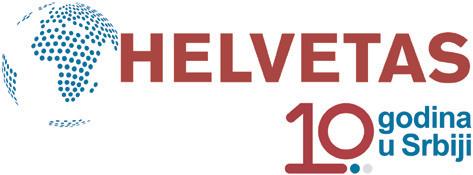

Over the past ten years, Helvetas Serbia has collaborated with central and local government institutions, civil society organisations, the private sector, and the media.
STRENGTHENING CITIZEN PARTICIPATION IN LOCAL FINANCES
One of the key projects concluding this year is the Account‑ able Local Finances and Citizen Participation (MED) project. “After three successful phases, funded by the Swiss Govern‑ ment, MED has demonstrated that engaging citizens in deci‑ sion‑making and promoting responsible management of local finances leads to tangible results – improved services, strong‑ er communities, and increased public trust,” says Snežana Mišić Mihajlović, Governance Portfolio Manager at Helvetas Eastern Europe.
With support from the MED project, 44 partner municipali‑ ties have generated over €30 million in additional own‑source revenues, directly contributing to local development and bet‑ ter services for citizens.

CREATING OPPORTUNITIES THROUGH INCLUSIVE AND GREEN ECONOMIC DEVELOPMENT
Paulo Rodrigues, RECONOMY Programme Manager, explains that – with support from Sweden and implemented by Helve tas – the programme contributes to inclusive and green eco nomic development in Serbia by fostering employment oppor tunities for women and young people.
Through strong private sector engagement, initiatives such as the partnership with the Volvo Group and local vocational institutions are helping to advance Serbia’s heavy duty trans port sector. At the same time, Helvetas is supporting the coun try’s digital transformation. “A standout example is our part nership with the Serbian Games Association, which supports the country’s dynamic game development industry through training, business development, and access to international markets – helping create a new generation of digital entrepre neurs,” Paulo emphasises.
Furthermore, by supporting the digitalisation of the Trans Dinarica Cycle Route regionally, the project combines phys ical infrastructure with a mobile application offering GPS navigation and local business listings. In Serbia, this in itiative aims to boost rural tourism, promote eco friend ly travel, and generate new income opportunities for lo cal communities.
EMPOWERING SERBIA’S CIVIL SOCIETY ORGANISATIONS
Cross sectoral collaboration is essential to national devel opment. Strengthening ties between civil society organisa tions and the private sector, while empowering citizens, is key to building a resilient and inclusive Serbia.
“Companies can act independently, but partnerships across sectors yield better quality and greater impact. Activities with in such partnerships must be thoughtfully designed, strategi cally planned, and, most importantly, sustainable. For exam ple, it is commendable when a company plants seedlings, but that activity should involve the local community and perhaps a utility company to maintain the new green areas. The com pany should also assess its ecological footprint, aligning such efforts with ESG principles,” says Snežana Mišić Mihajlović.
Through the ACT project, supported by Switzerland, Helve tas is working to enhance the sustainability of 30 civil society organisations across Serbia. “Our aim is to help these organ isations diversify their funding sources and establish mean ingful partnerships with the private sector – not just through fundraising, but also by offering services. We already have ex amples of good practice,” notes Gorana Radovanović, Team Leader of the For an Active Civil Society Together – ACT project.
She highlights the example of Prostor, an organisation fo cused on mental health, which collaborates with private com panies to deliver employee workshops aimed at improving well being, reducing stress, enhancing work performance, and in creasing employees’ contribution to their organisations.
ACT is implemented by Helvetas in partnership with Civic Initiatives and with financial support from the Swiss Govern ment. In addition to funding, partner organisations receive support for organisational development, citizen engagement, and network building.
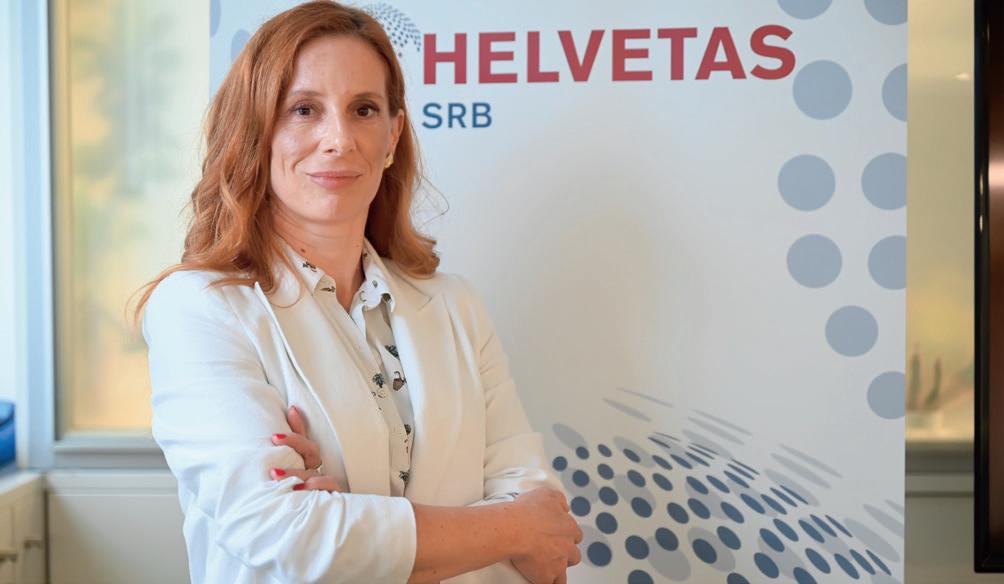
Gorana Radovanović, Team Leader of the For an Active Civil Society Together – ACT project
IMPACT IN NUMBERS
Over the past five years, the ACT project has provided financial support to 200 civil society organisations across Serbia – 70% of them based outside Belgrade. More than 150,000 citizens have directly benefited from these efforts. Importantly, the project has also contributed to tangible policy change, with 34 local and 11 national-level policy documents adopted – each aiming to improve the everyday lives of people across the country
Powering Global Progress from Serbia
The Serbian branch of the Swiss SR Technics Group recently marked ten years of operations. Through its Belgrade office, the team in Serbia has become an important link in the SR Technics value chain, which includes more than 1,800 employees worldwide
We firmly believe that our greatest asset is our people.
In Serbia, we’ve built a strong and talented team, and we remain deeply committed to identifying, supporting and developing young professionals, says Milena Gajović Shrestha, General Manager, SR Technics Services.
How do you reflect on this first decade and everything you have achieved during that time?
— Celebrating ten years of SR Technics Services in Serbia is both a proud and meaningful milestone for all of us. It is a testament to the dedication, passion and professionalism of our entire team in Belgrade, whose efforts have helped shape the company’s success and longterm presence in the region.
Over the past ten years, we have grown from a small local presence into a strong and capable team that plays an important role in supporting our global operations. What makes me especially proud is the fact that our colleagues in Serbia do not simply keep pace with the rest of the organisation – they actively drive our business forward by contributing engineering, administrative, financial and technical expertise of the highest calibre.
In Serbia, the company employs over 330 highly educated professionals. This clearly demonstrates your strong commitment to identifying and developing young talent?
— Our commitment is reflected not only through structured personal development plans and continuous learning programmes, but also through close cooperation with educational institutions and organisations that empower the next generation.
Our partnership with Beoavia is a great example of this approach. It has been a highly successful collaboration, and we are proud to support young talent and contribute to the development of future professionals in the MRO and aviation industries. Since we have an Engine Engineers department based in Serbia, Beoavia’s projects are directly relevant to SR Technics, and we are pleased to support students and young professionals who have chosen to pursue careers in the aviation sector.
What is the significance of this new operational centre in Zurich, Switzerland?
Over the past two years, the company has undergone a successful transformation, with a renewed strategic focus on engine maintenance
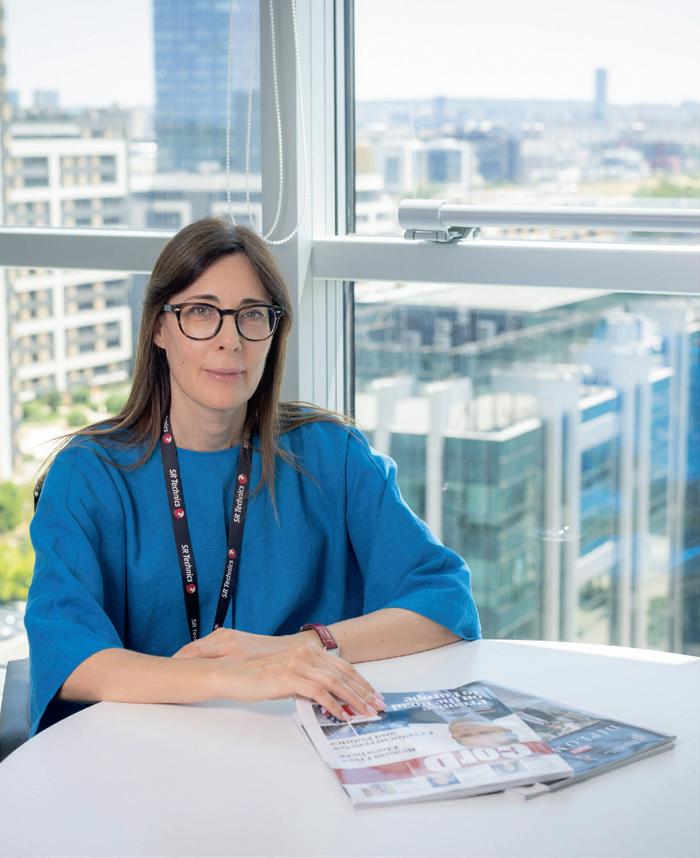
— The expansion to an additional location in Switzerland marks an important step in our growth journey. As we continue to strengthen our position in the aviation MRO industry, this move reflects our commitment to meeting rising demand for both new-generation and main engine services.
The new site in Bad Zurzach, located just 30 minutes from our main base at Zurich Airport, provides the ideal combination of space, proximity to our existing engine shop for seamless integration, and ready-to-use infrastructure.
This expansion not only responds to today’s operational needs, but also positions us to seize future opportunities – ensuring we remain a reliable partner for our customers, while continuing to deliver efficient and high-quality support for their fleets.
You must be very proud to hear that the Serbian team not only keeps pace with the global rhythm but helps drive it forward?
— Globally, SR Technics has positioned itself as the partner of choice for aviation businesses seeking tailor-made, innovative solutions that meet the highest international standards and embody Swiss quality. In the last couple of years, the company has undergone a successful transformation, with a renewed strategic focus on engine maintenance.
Our team in Serbia actively supports this global direction at every step – delivering expertise and operational excellence fully aligned with international standards.
In Anticipation of the Swiss National Day
Can Serbia, even in the boldest dreams of its average citizen, hope one day to become like Switzerland? It is a vast and complex question, but it is one worth asking if we are to create a vision and plan concrete steps towards such a future
As tradition dictates, Switzerland will celebrate its National Day around the world, including in Serbia, at the Residence of the Swiss Ambassador in Belgrade. The event will be attended by business representatives connected to Switzerland, among them Alma Quattro, which has operated in Serbia for 31 years and is owned by Zurichbased APG|SGA, itself marking 125 years of existence this year. A long tradition of business success mirrors the journey of Alma Quattro, which has survived and thrived in an often unpredictable market. Those who endure in such conditions truly write history.
What is it like to do business in Serbia?
In one word: “Gazimestanlike”. While the Swiss value punctuality, predictability and consistency – the very foundations of creating a desirable future – in Serbia these values are often missing. Plans rarely unfold as designed, longterm planning is difficult in an unpredictable environment, and consistency often manifests only in our ability to adapt and improvise to the breaking point.
We cannot avoid reflecting on the present moment. We live in unstable times, with weakened institutions, a crisis of values, and deepening economic and social uncertainties. Such circumstances exert constant pressure on business, impacting planning, execution, and forecasting. The dominant strategy

riencing – and how we emerge from it – will shape the foundations of a more democratic, orderly and prosperous Serbia. This is a message to the future.
Can we hope, in our boldest dreams, for a Serbia that preserves its natural wealth – its rivers, forests, water sources and national parks? For a business environment where employers prioritise good practices, employee welfare and community contribution? For an economy where decisions are not dictated by shortterm financial gain, but by conscious, longterm planning, where investors – large or small, domestic or foreign – commit to projects spanning decades, securing stable revenues while protecting local communities?
This is the broader vision we need if we are to develop a strategy and clear steps towards that future. I imagine a Ser-
The crisis we are experiencing – and how we emerge from it – will shape the foundations of a more democratic, orderly and prosperous Serbia. This is a message to the future
in such an environment is often avoidance. In the Serbian context, the very concept of “commitment” barely exists. Why do so few want to take on obligations or make longterm commitments in exchange for better conditions or partnerships? Because there are no reliable mechanisms to guarantee the outcomes of such undertakings.
Explaining the current state of affairs in Serbia to the average Swiss person is no easy task. Yet the crisis we are expe-
bia that is rich in resources, potential and opportunities – a market where every citizen feels at home, with a purpose and a role in building the society we share.
With the hope that one day the average Serbian citizen may carry the concerns of an average Swiss one, I extend my warmest congratulations to our friends and business partners on the occasion of the Swiss National Day and wish them many more years of enjoying the beauty of their remarkable country.



Ten Swiss WatchStartups in To 2025.



Switzerland continues to set the pace in science, innovation and entrepreneurship. These ten startups exemplify the country’s growing role as a global tech incubator
Switzerland has long held a reputation as a hub for innovation, academic excellence and cutting-edge technology. With its world-class universities, stable political and economic environment, and access to top-tier investment, the country offers fertile ground for new ventures in artificial intelligence, life sciences, robotics and quantum computing.
In recent years, the Swiss startup ecosystem has ex‑ panded significantly, with promising companies emerg‑ ing in areas such as clean‑tech, space tech‑ nology and next‑generation computing. Cities like Zurich, Lausanne and Basel have become magnets for ambitious entrepreneurs, researchers and inves‑ tors looking to scale bold ide‑ as and build globally rele‑ vant solutions.
Below are ten start‑ ups shaping Switzer‑ land’s technological fu‑ ture in 2025.




AXMED (BASEL)
Axmed focuses on improving access to essential medicines, particularly in low‑ and middle‑income countries. Its platform connects healthcare pro‑ viders with prequalified manufactur‑ ers, ensuring the availability of af‑ fordable, high‑quality treatments. Through its global advisory servic‑ es, the company also supports phar‑ maceutical firms in developing inclu‑ sive market strategies. Founded in 2023, Axmed has secured €6.7 mil‑ lion in funding to expand its glob‑ al presence.








CELLX BIOSOLUTIONS (ZURICH)
CellX offers sustainable bi‑ odegradation technologies for the treatment of chem‑ ical waste. Using natural‑ ly occurring bacteria, the company’s systems break down pollutants such as PFAS, pharmaceuticals and agrochemicals. CellX also provides biodegradabili‑ ty testing and customised treatment solutions to help industries meet environ‑ mental standards. Estab‑ lished in 2024, the startup has raised €2 million.
DPHI SPACE (LAUSANNE)
DPhi Space provides a hosted payload platform that simplifies the deployment of space payloads. Its mod‑ ular service allows companies to access power, com‑ puting and communications for missions without the complexity of CubeSat development. By lowering the entry barrier, DPhi supports broader participation in space research. Founded in 2024, the company has raised €2.4 million to develop its platform.


MIMIC (ZURICH)
Mimic creates AI‑powered robots that learn from human motion to perform complex tasks. De‑ signed for human‑centric workplaces, the robots are capable of tool han‑ dling and task general‑ isation with minimal calibration. By lever‑ aging large‑scale vid‑ eo data, Mimic makes ro‑ botic automation more ac‑ cessible across industries. Estab‑ lished in 2024, the startup has raised €2.7 million.


LIGHTIUM (ZURICH)
Lightium develops photonic in‑ tegrated circuits using its propri‑ etary Thin‑Film Lithium Niobate (TFLN) platform. These compo‑ nents support applications in tel‑ ecoms, quantum computing and AI. The startup’s 200mm wafer manufacturing enables fast pro‑ totyping and scalable produc‑ tion. Founded in 2023, Ligh‑ tium has secured €9.6 mil‑ lion to advance its photon‑ ic technology.

NEXTESY (ZURICH)
Nexte‑ sy builds AI‑driv‑ en software to automate business pro‑ cesses including invoicing, payroll and accounting. Its all‑in‑one platform integrates document management and financial analytics, helping SMEs streamline operations. Founded in 2023, the company has secured €3.5 million to expand its enterprise auto‑ mation tools.
RHYGAZE (BASEL)
A spin‑out from the Institute of Molecular and Clini‑ cal Ophthalmology Ba‑ sel, RhyGaze is devel‑ oping gene therapy treatments for retinal diseases. Its optoge‑ netic approach intro‑ duces new light‑sensi‑ tive genes into non‑function‑ al cone cells, offering hope for vision restoration. With €92.5 million in funding se‑ cured in 2024, the company is advancing towards clinical application.


RIVR (ZURICH)
Formerly Swiss‑Mile, RIVR is developing wheeled‑legged delivery robots powered by physical AI. These systems are designed for efficient last‑mile logistics in urban settings, combining mobility with autonomous learn‑ ing. With over €24 million in backing, including from Bezos Expeditions, RIVR is currently tri‑ alling its robots with global logistics providers.

PREM LABS (LUGANO)
Prem offers a platform for building and de‑ ploying custom AI agents without requir‑ ing deep technical knowledge. Its technol‑ ogy supports specialised reasoning mod‑ els and small language models, with op‑ tions for self‑hosted deployment. Aimed at enterprises seeking greater control over AI workflows, Prem has raised €13 million since its founding in 2023.

ZURIQ (ZURICH)
ZuriQ is building a scalable quantum comput‑ er based on trapped‑ion qubits arranged in a three‑dimensional structure. Its system supports parallel operations and industrial‑grade chip fab‑ rication, aiming to accelerate breakthroughs in chemistry, logistics and pharmaceuticals. Found‑ ed in 2024, ZuriQ has raised €4 million to devel‑ op its hardware platform.

From biotech and robotics to AI and quantum computing, these ten startups highlight the breadth and ambition of Switzer‑ land’s innovation ecosystem. With strong institutional support and a global outlook, they are poised to shape the next chapter of European and global tech leadership.




A Partnership That Shifts the Paradigm
SME HUB, a public private partnership of the Swiss Government and ICT Hub, supports Serbian SMEs with targeted solutions and strategic support. The results confirm that this is more than short-term aid – it’s a model for sustainable development
SME HUB
As talk of reindustrialisation and market resilience grows, initiatives like SME HUB are delivering real impact. Aleksandar Goračinov, director of the SME HUB project, explains how this Swiss-Serbian collaboration is transforming Serbia’s SME landscape. Over 24 companies have already entered strategic transformation, supported by more than just funding – with visible results on the ground.
SME HUB is a public-private partnership between the Swiss Government and ICT HUB. What do the figures tell us? How do you evaluate the results? Have you achieved your aims?
The numbers speak for themselves –more than 24 SMEs across Serbia have launched transformation processes worth CHF 1.6 million through SME HUB. Some projects are ongoing, others recently completed, but we already see improvements in operations: streamlined processes, strengthened capacities, and more concrete cooperation with larger firms.
Our goal isn’t simply to disburse funds, but to provide expert, structured support. These grants aren’t perceived as gifts, but as investments in growth. In this regard, we are meeting our objectives. SME HUB has become a real catalyst for change –not through rhetoric, but through practical work in the field. One key achievement is that many SMEs have, thanks to the initiative, strengthened strategic and financial planning, digitalised process-
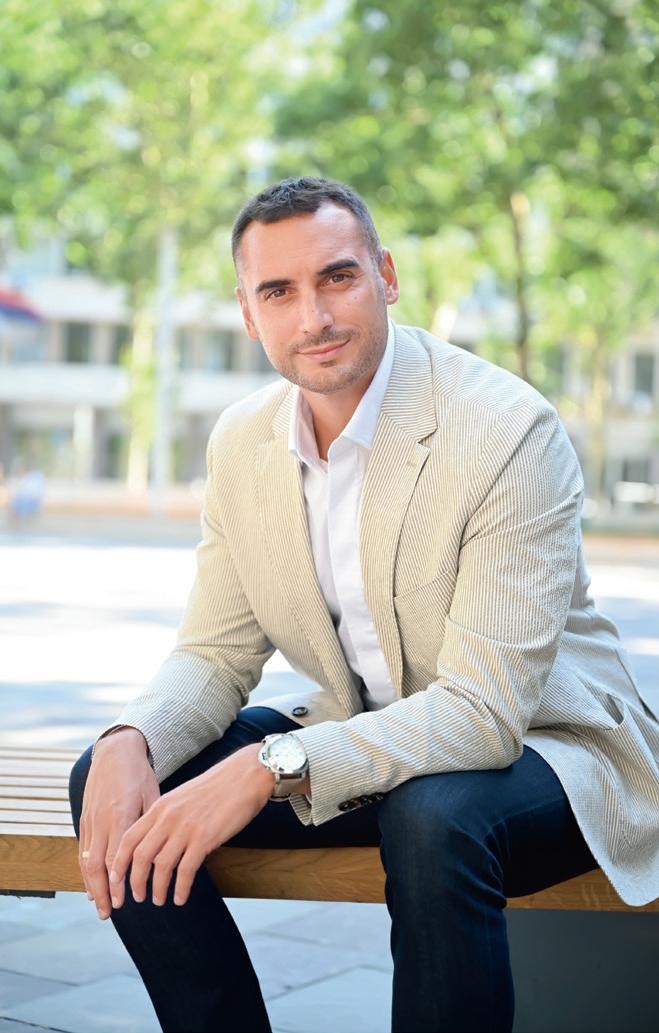
SME HUB is not a one-off initiative, it is a strategic partner for sustainable growth
es, professionalised leadership, and improved as suppliers within global value chains. Combined with deeper collaboration with large companies, it’s clear that SME HUB is a long-term partner, not a one-time solution.
Participating companies come from a range of sectors. Does this diversity reflect the initiative’s broader significance for the Serbian economy? Absolutely. From food production to metal, plastic, wood, and textile process-
ing, furniture and cosmetics manufacturing, and even lighting and electronics –SME HUB brings together businesses from diverse fields that face a common challenge: how to grow and stand out in a competitive market.
This variety shows that growth doesn’t depend on the industry, but on mindset. That’s why we define SME HUB as a development partner, not just support. In a time of renewed focus on reindustrialisation, we’re proving that Serbian SMEs have the potential – they just need proper direction and encouragement.
Switzerland is among Serbia’s leading donors. How important is their broadbased support in helping local businesses enter global markets?
The Swiss Agency for Development and Cooperation (SDC) sees support not as giving, but as co-investment in sustainability. Our partnership reflects that –based on trust, flexibility, and a readiness to learn through practice.
Switzerland’s model is unique in combining financial resources with strategic capacity-building. Serbian SMEs feel they are not alone – they have a partner who not only funds but also helps them level up. This brings confidence when facing competition and meeting international standards.
Ambassador Anne Lugon-Moulin has played a crucial role by recognising the importance of empowering SMEs. Her engagement has further reinforced the link between Swiss support and Serbian entrepreneurship. Through SME HUB, Switzerland is not only strengthening bilateral ties – it is directly boosting the competitiveness and resilience of the Serbian economy.
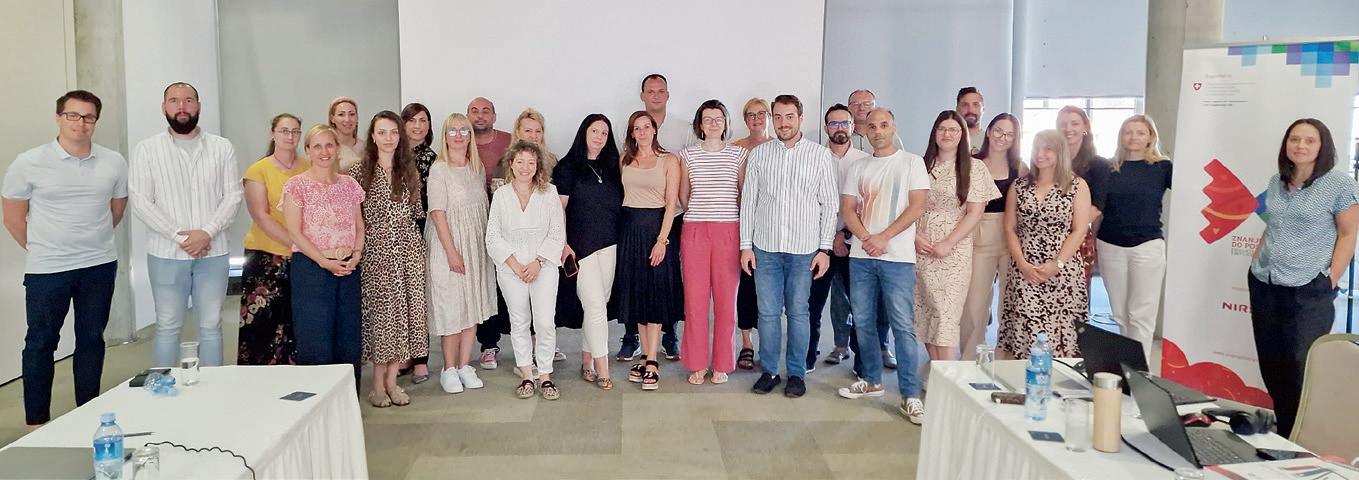
Meeting to form JIC Association

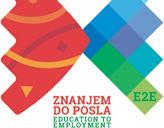
Bridging Skills, Building Futures: Serbia’s Career Guidance Transformation
Serbia’s youth employment landscape is undergoing a strategic transformation through Swiss-Serbian cooperation, which has created the country’s most comprehensive and innovative career guidance network to date. The Education to Employment (E2E) project illustrates how strong partnerships can bridge the skills gap, reaching young people in 11 cities through VR career exploration tools, digital assessments and modern counselling methods — reshaping the way Serbia prepares its future workforce.
SWISS-SERBIAN PARTNERSHIP DRIVES EMPLOYMENT INNOVATION
Two recent achievements reflect this progress: the national Career Guidance and Counselling (CGC) event in Belgrade and the formation of the Job Info Centre Association. These milestones place young people at the heart of decision-making, creating a user-centred system that supports their professional journeys.
Held on 20th May, the CGC event brought together more than 100 participants from institutions, local governments, civil society, international partners and employers. H.E. Anne Lugon-Mou-
lin, Ambassador of Switzerland to Serbia, emphasised the role of shared ownership: “We are proud to witness the evolution of career guidance in Serbia through new tools, digital technologies and a user-centred approach.”
TECHNOLOGY SERVING HUMAN POTENTIAL
The E2E project has introduced cutting-edge tools through Swiss-Serbian collaboration — such as VR- and AR-based career simulations, digital assessments and online career guidance scheduling systems. These technologies are already enabling young people to make more informed career choices, regardless of their background or location.
Zoran Martinović, Assistant Minister at the Ministry of Labour, remarked: “What makes our cooperation with E2E exceptional is the trust it’s built on, and the sustainable results it delivers.” The project has succeeded in strengthening institutions, not merely delivering short-term activities.
ELEVEN CITIES, ONE CONNECTED NETWORK
The national network of Job Info Centres, now active in 11 cities, offers free, data-driven and personalised career sup-

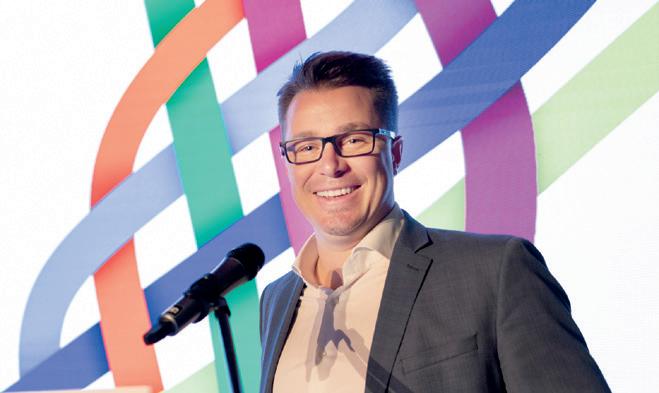
port to youth. These centres mark a shift from traditional approaches to a dynamic model that integrates real-time labour market data, career diagnostics and practical guidance.
“We are not just delivering a project — we are building a system,” said Oliver Streit, Head of the E2E project.
FROM PROJECT TO INSTITUTION: ENSURING LONG-TERM IMPACT
In June, representatives from 12 local partners gathered to establish the Job Info Centre Association — defining its legal and strategic framework and electing the first Board of Directors. Although registration is still pending, this represents a pivotal step towards institutionalising Serbia’s career guidance ecosystem.
This new Association will ensure the continuity of the high-quality services developed under E2E.
A MODEL FOR REGIONAL DEVELOPMENT
Serbia’s experience demonstrates how strategic partnerships, local expertise and smart technology can deliver scalable solutions that meet people’s needs and strengthen institutions.
As the Job Info Centres expand and the Association takes shape, E2E stands as proof that investing in systems — not just projects — lays the foundation for long-term success.
Setting New Standards
The Schindler Group is a leading manufacturer and supplier of elevators, escalators and moving walks. As a service-oriented company, they are entirely focused on the client, their needs and requirements






WWe have built a reputation as a reliable partner on the market, ready to respond to the most demanding needs of clients and the market, while respecting all legal and industry standards. Our extensive portfolio of references and core projects unequivocally demonstrate this, says Tanja Milovanović.
From day one, you have been pushing boundaries, with a focus on safety, comfort, efficiency and Swiss reliability?
— Yes, since its founding in Lucerne, Switzerland in 1874, the Schindler Group has continuously pushed boundaries in the vertical transportation industry, with a clear focus on safety, comfort, efficiency and Swiss reliability. Our innovative approach and constant technological improvement enable us to provide solutions that not only meet the highest standards, but also set new ones. The safety of our users is always the top priority, and reliability and efficiency form the foundation of our
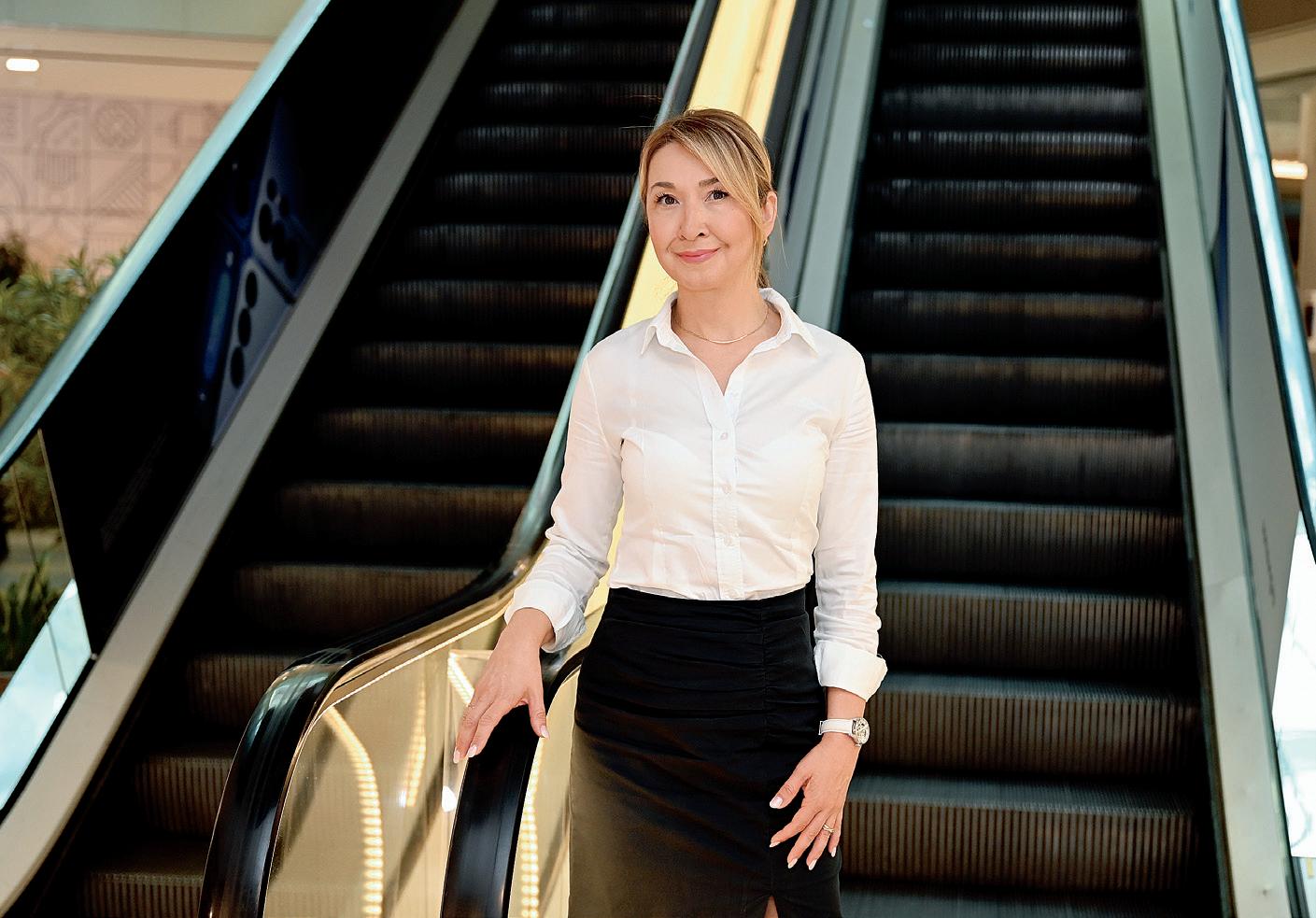
You insist on Swiss quality in product design, delivery and maintenance, on modernisation and consistent adherence to the highest Group standards, laws and regulations… A good enough reason for Schindler to be the first choice?
— Swiss standards are synonymous with precision, reliability and innovation, and we strive to reflect them as effectively and consistently as possible in every aspect of our business, within the
Continuous modernisation and consistent adherence to the highest Group standards, regulations and quality controls ensure that our products and services are always at the highest level
long-term success and our reputation as one of the world’s leading manufacturers and suppliers of this type of equipment. We are committed to excellence, safety and qualitie that distinguish us and establish our leadership in the local market.
context we geographically belong to. We believe that insisting on Swiss quality in product design, engineering, installation and maintenance is essential to building trust and long-term cooperation with clients.
In addition, continuous modernisation and consistent adherence to the highest Group standards, regulations and quality control ensure that our products and services are always at the highest level, directly contributing to customer satisfaction and the protection of their interests.
The combination of these parameters, combined with a team of professionals with nearly twenty years of experience in Serbia’s construction sector, makes Schindler the first choice. As a result, we have established a reputation as a dependable partner in the market, capable of meeting the most demanding client and market requirements while adhering to all legal and industry standards.
Our portfolio of references and notable projects reflects this—from small residential buildings throughout Serbia to cutting-edge commercial and business developments. Schindler d.o.o. Belgrade is dedicated to serving its clients, including architects, designers, consultants, investors, and end users.
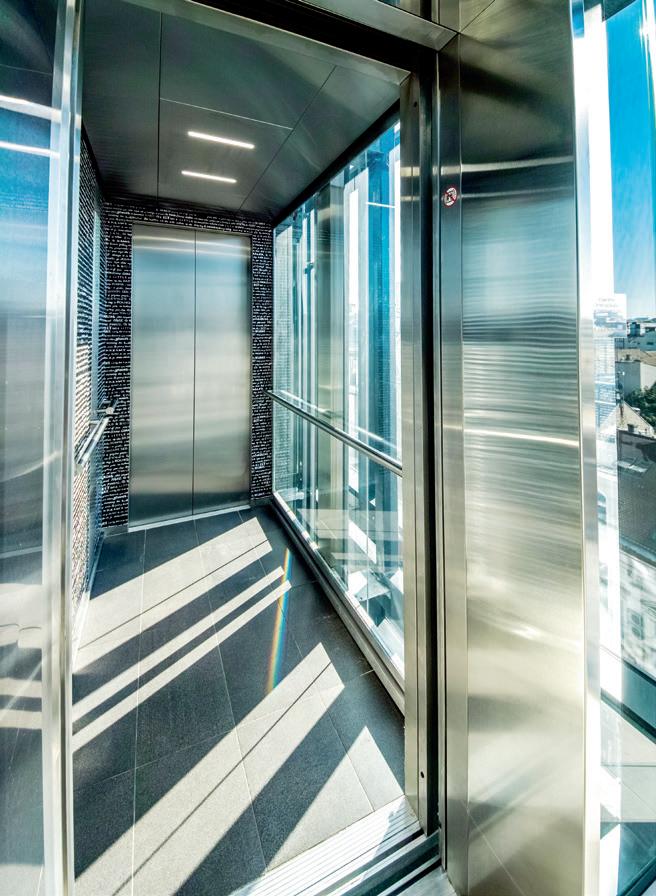

Our innovative approach and continuous technological improvement enable us to deliver solutions that not only meet the highest standards, but also set new ones
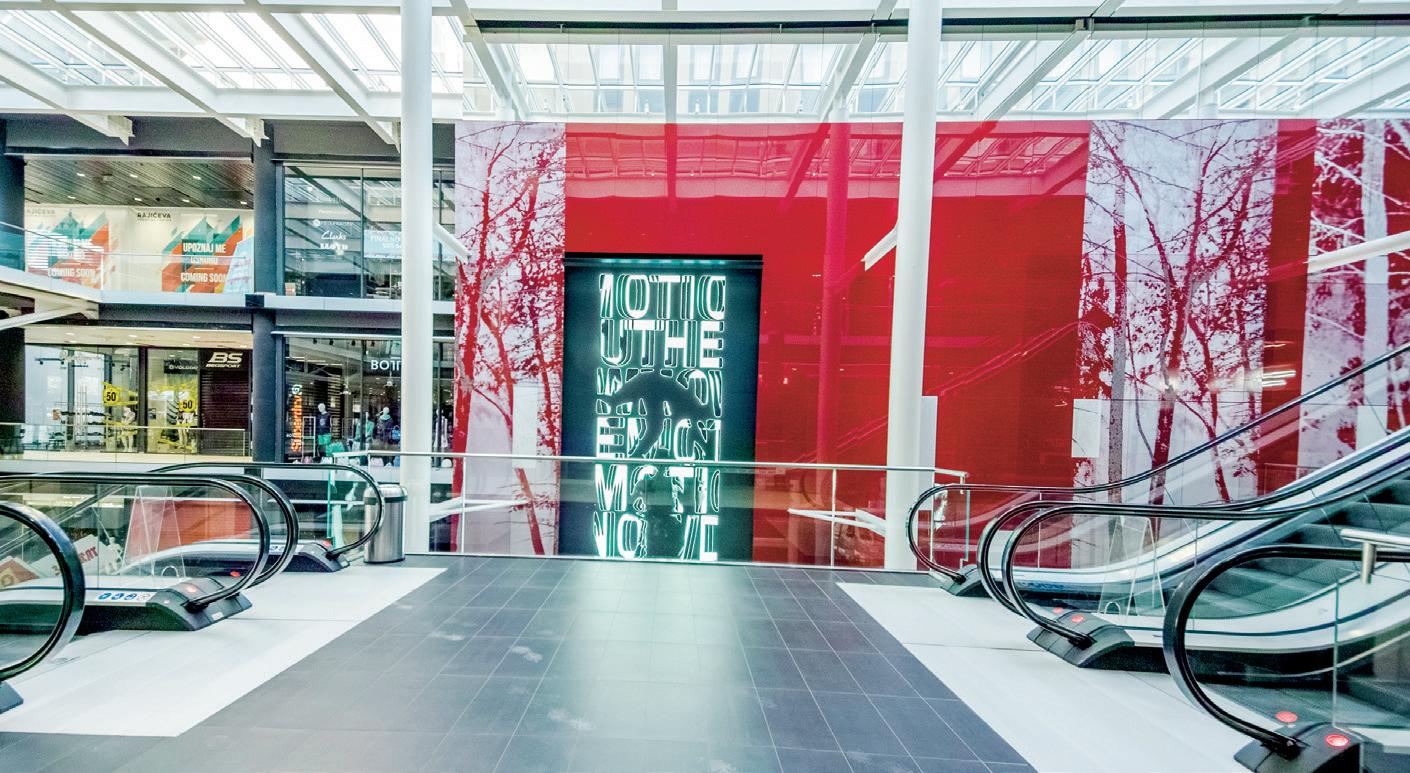
All your creative, innovative and technologically advanced solutions have been developed precisely in response to client needs? And your plans are made accordingly?
— In our company, the client is at the centre of everything we do. We believe that understanding and meeting client needs is the key to success, which is why we invest daily in the development of creative, innovative and technologically advanced solutions that directly address their requirements.
Our plans and strategies are shaped based on detailed insights into client needs, which enables us to provide services and products that are not only innovative, but also relevant and useful to them. This approach allows us to remain
flexible, adaptable and always one step ahead, so that we can continuously create new quality and value in the segment we operate in.
You can be proud of your continuous investment in smart product networks and digital processes. With these new investments, you are laying the foundation for unlocking the full potential of AI wherever you operate – including in Serbia?
— We can say with certainty that prioritizing investments in smart product networks and digital processes is a core focus for us. These ongoing Investments allow us to strengthen our infrastructure and boost efficiency, while also establishing a solid groundwork for the in-
tegration of advanced technologies like artificial intelligence..
Some of our most innovative packages include: Schindler PORT 4D, Schindler Ahead Digital Media Services, Modular Elevators, Schindler Clean-Mobility Solutions, etc.
We believe that AI will play an important role in our industry and will enable us to deliver even more innovative solutions, improve the user experience and increase our competitiveness in the market. Our goal is to harness the full potential of this technology and to become a leader in digital transformation – not only in Serbia, but across the region. We look forward to continuing this path of success with new, exciting and challenging projects.
AI Must Be Regulated by Law
The eminent legal directory The Legal 500 recognises Djokić + Partners as one of the leading firms in the field of intellectual property law — a reputation of particular relevance in today’s digital economy



We closely monitor how emerging technologies are reshaping the intellectual property landscape, and we believe that legal advice must evolve in tandem with the technologies it supports, says Milica Aranđelović, Partner at Djokić + Partners, emphasising that their role is to provide clients with secure legal protection and long-term value for their ideas,whether human-made or AI-generated.
How are modern technologies, particularly artificial intelligence, transforming the perception and protection of intellectual property in the business environment?
In today’s digital economy, intellectual property, at least in part, can no longer be viewed as a static legal category. It has become a dynamic asset, one that constantly evolves thanks to technol‑

are no longer solely the product of the human mind?
To these questions, legislators have yet to provide clear answers.
Today, AI can generate music, visual art, design concepts, software code, and
To stay competitive, companies must view intellectual property not merely as a legal safeguard but as a strategic asset
ogy. The rise of artificial intelligence and innovation has raised fundamen‑ tal questions: Who owns the rights to computer‑generated content? Can ex‑ isting IP legal frameworks adequate‑ ly address the challenges of this new mode of creation? And how can com‑ panies protect intangible assets that
even industrial inventions. However, au‑ thorship in legal terms remains tied to human creativity, originality, and au‑ thorship. This puts companies increas‑ ingly reliant on AI tools in a difficult po‑ sition. Ownership, authorship and li‑ censing of AI‑generated content remain legal „grey zones”.
How can companies proactively protect digital assets in the context of rapid technological change?
The value of digital innovation is rising sharply and demands ever‑evolving pro‑ tection strategies. In some countries, dig‑ italisation has enabled new ways of se‑ curing intellectual property. Technolo‑ gies such as blockchain can track and verify authorship and usage in real time, while smart contracts offer automated rights management.
Yet, these tools are only effective when backed by strong IP strategies and clear‑ ly defined legal frameworks — which, in Serbia, are still in development.
Recognising the urgency of regulating AI, Serbia adopted a new Strategy for the Development of Artificial Intelligence for the period 2025–2030. This Strategy nota‑ bly addresses the need to regulate copy‑ right and other forms of intellectual prop‑ erty protection.
How can law firms help companies turn intellectual property into a competitive advantage?
To stay competitive, companies must view intellectual property not merely as a legal safeguard but as a strategic asset. Those who identify and protect the value of their digital solutions from the outset are far better positioned to compete in an environment where in‑ novation is fast‑paced and increasing‑ ly AI‑driven.Law firms can play a key role in this process, through legal ad‑ visory, identifying valuable intangible assets, developing protection strategies and adapting clients to new regulatory frameworks, both in domestic and in‑ ternational markets.


Swiss Expertise, Local Impact
The Swiss-Serbian Chamber of Commerce is entering a new phase of development, strengthening its member network and institutional dialogue both in Serbia and in Switzerland. In focus on innovation, ESG standards and artificial intelligence reinforces the strategic importance of the Chamber for the business community
We spoke with Ana Grujović, Executive Director of the Swiss-Serbian Chamber of Commerce, about the organisation’s plans for its second decade of operation. The conversation covered the expansion of SSCC membership, support for digital and ESG transformation, and deeper integration into regional and European business trends. We also explored female leadership, the upcoming CEE Day in Zurich, and the Chamber’s role in linking Serbia with Switzerland’s innovation ecosystem.
The SSCC is entering its second decade. How do you plan to continue building the Chamber’s capacities in a way that further strengthens its institutional influence on the business environment?
— The Swiss-Serbian Chamber of Commerce marked its tenth anniversary last year, having been established in 2014. In 2025, we intensified our efforts to further develop the Chamber’s capacity by expanding our membership base. We are pleased to note that our new members already include Swiss companies such as Wyss&Lilla and Vonroll Hydro, as well as leading banks like Unicredit, AIK Bank and OTP Bank, among others. In terms of institutional impact, the SSCC places special emphasis on professional development seminars and business improvement opportunities for member companies. These include business breakfasts on topics such as workplace injury prevention and webinars on cyber security. I would particularly highlight a seminar we held in March this year in cooperation with the Development Agency of Serbia and the Development Fund, aimed at presenting the available support programmes that offer non-refundable grants to boost productivity, competitiveness and exports. Incentives for reinvestment by companies already operating in Serbia were also presented,
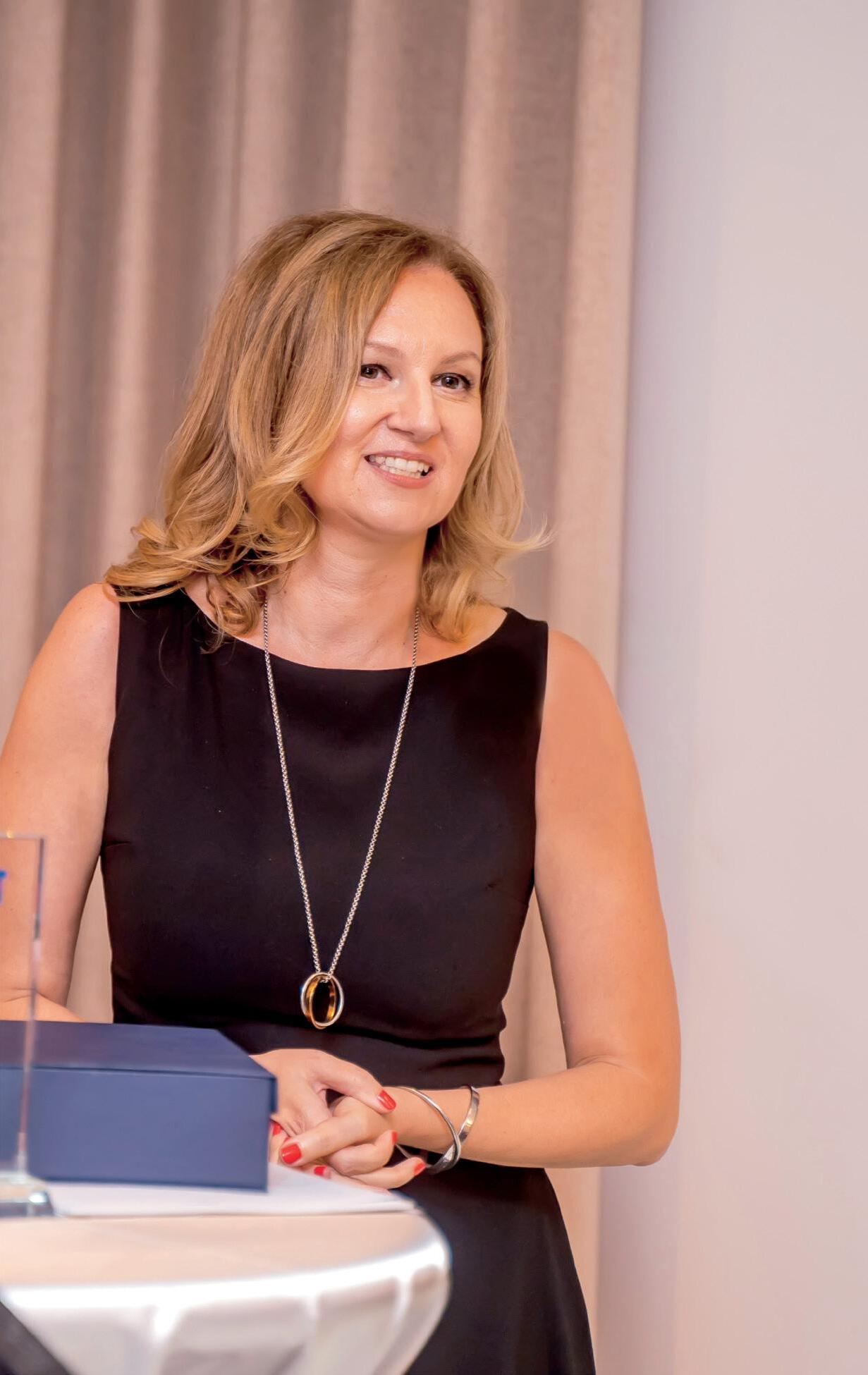
along with concrete support mechanisms for the sustainable growth of the SME sector.
Will SSCC members have the opportunity to participate in events in Switzerland in the second half of the year?
— Yes. We are planning to hold the “CEE Day 2025” event in Zurich in mid-September, organised in collaboration with our institutional partner in Switzerland, the Chamber of Commerce Switzerland Central Europe (SEC). This event is designed to increase the visibility of business opportunities in the Serbian market among Swiss companies. An SSCC representative will take part in a panel discussion on the business environment in the region, including Serbia. We have already received confirmations from speakers representing UBS, Novartis and others. Following the official programme, B2B meetings will be organised with Swiss companies interested in the Serbian market, giving them an opportunity to obtain upto-date and in-depth information on the benefits and challenges of doing business in Serbia.
How do you assess Serbia’s potential to become a regional hub for innovation and digital solutions, particularly in the context of Swiss-Serbian cooperation?
— Switzerland continues to lead globally in the field of innovation. As of 1st July this year, Switzerland – through its innovation agency Innosuisse – has assumed the presidency of EUREKA, the world’s largest innovation network, for a oneyear term. Innovation is vital to further developing Swiss-Serbian cooperation and can significantly strengthen Serbia’s potential to become a regional centre in this field.
Many SSCC members not only operate in Serbia but are also active throughout the wider region. I was pleased to speak at the launch of the new magazine The Region, which highlights the importance of regional markets for the continued development of innovative business activities carried out by companies operating in Serbia, including SSCC members. Artificial intelligence is emerging as a key tool of the future, and its advancement and responsible application are among SSCC’s priorities this year. One example is the recent seminar we organised together with our member Mokrogorska School of Management, focusing on the use of AI tools to improve traditional HR functions and processes. The topic proved very relevant and the seminar received excellent feedback from members, especially due to the practical solutions presented.
That said, navigating the ethical challenges associated with AI – such as data protection, pri-
vacy and the need for clear and transparent regulation – is essential for its further development and responsible application. For Serbia to position itself as a regional innovation leader, it is vital to continue strengthening the start-up ecosystem, encouraging closer cooperation between academia and industry, and increasing investment in scientific research and development.
The Chamber is already recognised for its inclusiveness and gender balance. Do you plan to further develop initiatives aimed at promoting female leadership among your members?
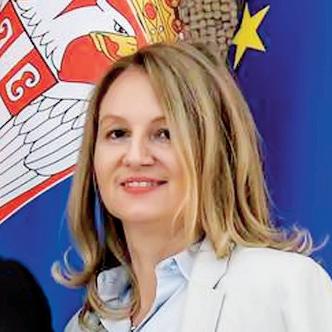
INNOVATION
Innovation is vital to further developing Swiss-Serbian cooperation
THE REGION
I was pleased to speak at the launch of the new magazine
The Region, which highlights the importance of regional markets
STARTUPS
For Serbia to position itself as a regional innovation leader, it is vital to continue strengthening the start-up ecosystem
— The Swiss-Serbian Chamber of Commerce is now chaired by a woman for the second time. Our first female president was Yana Mikhailova, then Regional Director of Nestlé South-East Europe. Since 2024, our President has been Ana Govedarica, GM, Roche Serbia and Montenegro. Many SSCC member-companies are led by experienced female leaders, such as Ringier Serbia, SR Technics, Almaquattro, and other. We are also particularly pleased that, for the first time, the Swiss Embassy in Belgrade is led by a woman – H.E. Swiss Ambassador Anne Lugon-Moulin – with whom we have developed a highly constructive and dynamic relationship that greatly contributes to the Chamber’s growth.
How are new European regulations and ESG standards reshaping the priorities of SSCC member companies, and how is the Chamber helping them align with these requirements?
— In November 2024, amendments to the Energy Law were adopted, aligning Serbia’s regulatory framework with EU standards while promoting a transition towards renewable energy. Owing to strong interest among SSCC member companies in this area, we held the second “Green Energy Transition” conference in June, in cooperation with the Chamber of Commerce and Industry of Serbia and our colleagues from the Belgian, Greek and Croatian bilateral business associations.
Alongside the Energy Law, the conference addressed the main challenges facing Serbian companies that export CBAM goods to the EU. During the panel discussion – which featured an SSCC member company, AXPO d.o.o. Beograd with head office in Baden, Switzerland – innovative ways to enhance the sustainability of the Serbian economy were presented. At the same time, the needs of SMEs were highlighted, particularly in terms of workforce training, access to adequate funding for sustainable business transformation, and the need for further strengthening the dialogue between the state and the private sector.

Switzerland on Top of the
World
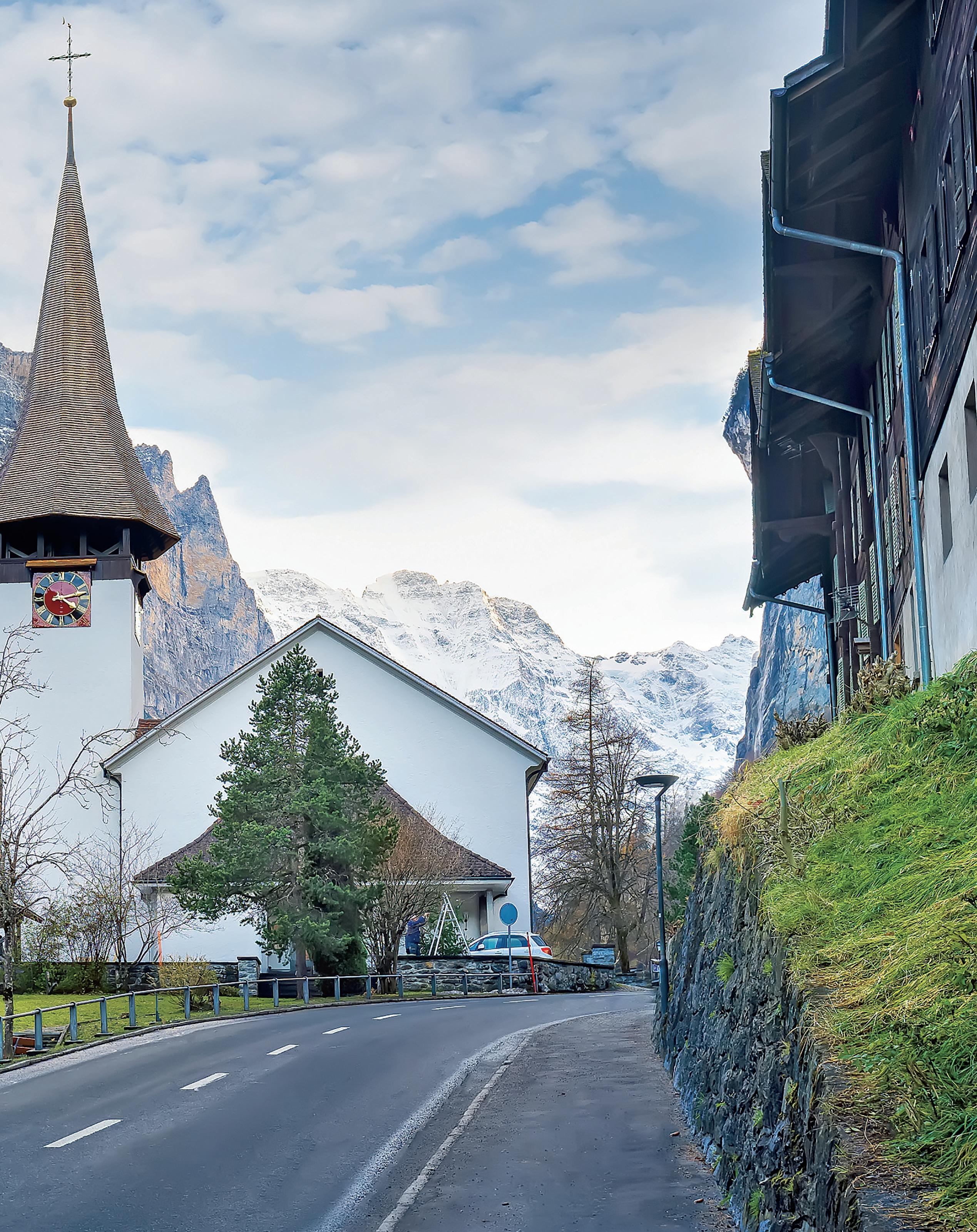

The Swiss tourism sector recorded its highest-ever number of overnight stays in 2024, led by a sharp increase in visitors from North America and a steady return of travellers from Asia and Europe. Cities like Zurich and Geneva are once again thriving, while alpine and urban destinations alike show signs of a lasting tourism revival.
Switzerland’s tourism sector reached a histor ic peak in 2024, registering 42.8 million overnight stays—a 2.6% increase compared to the previous year. This remarkable achievement underscores the country’s growing stature as a top tier global destination, eclipsing all previous records.
Latest figures confirm the vital role of inter national travellers, with foreign overnight stays rising by 5.1% to reach 22 million—Switzerland’s highest total in more than fifty years. Among these, visitors from North America stood out as key drivers of demand, providing a significant boost to the country’s hospitality industry.
December marked an exceptional month, with foreign overnight stays surging by 10.7%, while de
mand throughout the year remained strong over all. Only two months—April and September—reg istered marginal declines, reaffirming the resil ience of Swiss tourism.
Switzerland’s tourism sector reached a historic peak in 2024, registering 42.8 million overnight stays—a 2.6% increase compared to the previous year. This remarkable achievement underscores the country’s growing stature as a top-tier global destination, eclipsing all previous records
ASIA’S RETURN, EUROPE’S STEADY CLIMB
While North American visitors led the recov ery, Switzerland also recorded notable growth from Asia, particularly from key source markets
across the region. Although Asian arrivals have not yet reached pre pandemic levels, the current upward trend suggests a steady and sustainable comeback.
European travellers, meanwhile, contributed 12.2 million overnight stays—reflecting stable de mand and a gradual return to pre 2020 patterns. Several individual markets posted visible gains, maintaining Switzerland’s appeal as one of Eu rope’s most desirable destinations.
URBAN DESTINATIONS REGAIN MOMENTUM
Of Switzerland’s 13 major tourism regions, nine recorded growth in 2024, with Zurich and Geneva posting the most significant increases. These dy namic cities attracted a strong mix of leisure and business travellers, alongside major internation al events that lifted hotel occupancy.
Nationwide, the room occupancy rate reached 55.1%, approaching the record set in 2019. Nota ble gains were also recorded in Basel and Central Switzerland, pointing to broad based appeal be yond traditional alpine hotspots.
LOOKING AHEAD WITH CONFIDENCE
Swiss tourism is enjoying a golden moment. With record setting visitor numbers, a resilient hospitality sector, and growing demand for na ture, wellness, and winter sport experiences, the industry is poised for further growth.
The outlook for 2025 remains bright. As inter national travel continues its rebound and long

Swiss tourism is enjoying a golden moment. With record-setting visitor numbers, a resilient hospitality sector, and growing demand for nature, wellness, and winter sport experiences, the industry is poised for further growth
haul markets show renewed enthusiasm, Swit zerland appears well positioned to deliver an other year of exceptional performance. Wheth er this will translate into a new all time record remains to be seen—but the trajectory is clear ly upward.


Sounds Alps Heart of of the in the Belgrade
On 25th April 2025, the Atrium of the Na‑ tional Museum in Belgrade hosted Symphony of the Alps, a unique con‑ cert blending Swiss musical heritage with a Serbian audience. Organised with the sup‑ port of the Embassy of Switzerland, the Swiss Arts Council and the Rossi Fest Foundation, the evening featured renowned alphorn soloist Ana Stanković, who brought the evocative sound of the Swiss Alps to Belgrade.
Ana’s performance on the alphorn, one of the most iconic symbols of Swiss musical heritage, bridged natural soundscapes with human emotion, evoking alpine folklore within a contemporary concert setting
Born in Belgrade and now based in Germa‑ ny, Stanković has become one of Europe’s lead‑ ing interpreters of the alphorn, performing inter‑ nationally with various orchestras and ensem‑ bles. In this concert, she performed alongside the Jewish Chamber Orchestra and the Braća Ba‑ ruh Choir under maestro Stefan Zekić, present‑ ing works by Swiss and European composers, as well as traditional Swiss songs arranged for choir and alphorn.
Beyond its artistic calibre, the concert stood as a powerful act of cultural diplomacy, symbolising dialogue and collaboration between Serbia and Switzerland. Thanks to the support of the Swiss partners, the event was open to the public, offer‑ ing Belgrade an unforgettable encounter with the breath of the Alps in a celebration of shared her‑ itage and artistic openness.















